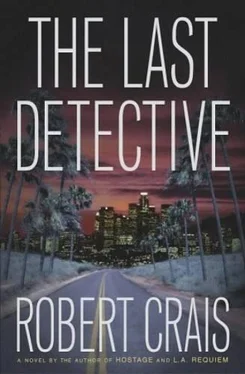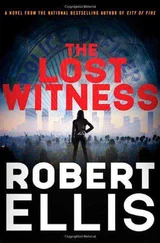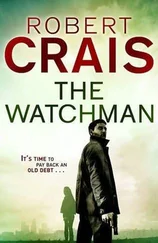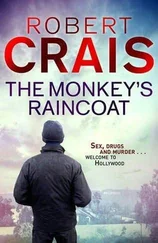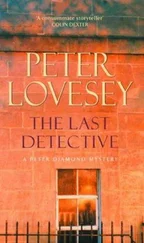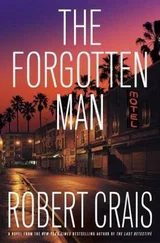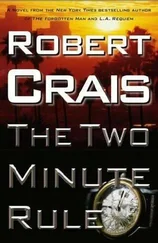Pike went for the curtain and I went for the mailbox. The boxes were built sturdy, with bronze metal doors set flush to a metal frame. Each door had a small glass window so you could see whether you had mail and a reinforced lock. Schilling's box was packed with mail.
I worked the screwdriver's blade under the door, then hammered it open with the jack handle. None of the mail was addressed to Eric Schilling or Gene Jeanie; it was addressed to Eric Shear.
"It's him. He's using the name Eric Shear."
The alarm was so loud that I shouted.
I shoved the letters into my pockets, then ran to help Pike.
The metal curtain ran along tracks in the floor and ceiling so that you couldn't climb over or under, and was stretched between two metal pipes anchored into the walls. We used the crowbar and the jack handle to break away pieces of the wall from under one of the pipes, then pried the pipe from the wall. It bent at a crazy angle and we pushed it aside.
Outside, someone shouted, "Hey, look at that!"
People were gathering in the parking lot. They crouched behind cars or stood in small groups, pointing at the shop and craning their heads to try to see what we were doing. Two men gawked through what was left of the front door, then hurried away. I didn't know how long Pike and I had been inside, but it couldn't have been long: forty seconds; a minute. The alarm clouded the little store with noise. It was so loud that it would cover the sound of approaching sirens.
We shoved through the collapsing curtain and into the office. Towering stacks of packages crowded the floor and an enormous bag of Styrofoam packing peanuts hung from the ceiling. A file cabinet stood in the corner beside a small desk cluttered with what looked like unsorted mail and UPS receipts. Pike checked the service door as I went to the files.
Pike shouted over the alarm that the way was clear.
"We're good. The deadbolts open with levers."
I opened the top file drawer expecting to see folders filled with paperwork, but the drawer contained office supplies. I pulled the next two drawers, but they only held more supplies. Pike peeked out the back door to see if anyone was coming. Our time was running out.
"Faster."
"I'm looking."
I scattered papers, magazines, and envelopes from the desk, then opened its drawer. It was the only drawer left. The drawer had to contain rental agreements for the customers who rented the boxes, but all I found were ordering records for the services and supplies that Stars & Stripes needed to conduct its business; nothing referred to the boxes or the clients who rented them.
Pike tapped my back, and looked toward the parking lot.
"We got a problem."
An overweight man in a yellow knit shirt was surrounded by people in the parking lot, all of them pointing our way. The shirt was too tight, so his belly bulged over his belt like a Baggie filled with jelly. The word SECURITY was stenciled on the shirt over his heart like a badge, and he wore a pistol in a black nylon holster clipped to his right hip. So much flab spilled from his pants that the pistol was almost hidden. He crept forward with his hand on his gun. He looked scared.
I said, "Jesus Christ, where'd he come from?"
"Keep looking."
Pike slipped past me with his pistol out. I caught his arm.
"Joe, don't."
"I'm not going to hurt him. Keep looking."
The guard knelt behind a car and peered over the trunk. Pike moved into the door so that the guard saw him. That was enough. The guard threw himself to the ground and curled up behind the tire. At least he didn't start shooting. Discretion is the better part of valor when all you get is minimum wage.
Pike and I heard the sirens at the same time. He glanced back at me, and I waved him back. We had run out of time.
"Let's go."
"Did you find it?"
"No."
Pike fell back past the counter to the service door.
"Keep looking. We have a few seconds."
"We can't find him from jail."
"Keep looking."
That's when I saw the brown cardboard box under the desk. It was just the right size and shape for storing file folders. I pulled it out from under the desk, and pushed off the top. It was filled with folders that were numbered from one to six hundred, and I knew that each number corresponded to a box. I pulled the folder marked 205.
"We're out. Go!"
Pike jerked open the door. Outside, the air was cool and the alarm wasn't so loud. The two men with their potatoes shouted into their kitchen when they saw us, and others came out as we left. We turned our cars onto a service street behind a Cineplex theater eight blocks away, and looked through the file. It contained a rental agreement for Eric Shear. The rental agreement had a phone number and his address.
time missing: 50 hours, 37 minutes
Eric Shear lived in a four-story apartment building on the western edge of San Gabriel called the Casitas Arms, less than ten minutes from the mail drop. It was a large building, the kind that packed a hundred apartments around a central atrium and billed itself as "secure luxury living." Places like that are easy to enter.
We parked in a red zone across the street, then Pike got into my car. When I turned on my phone I found three messages from Starkey, but I ignored them. What would I tell her, that the next BOLO she received would be about me? I dialed Schilling's number. An answering machine picked up on the second ring with a male voice.
"Leave it at the beep."
I hung up and told Pike that it was a machine.
He said, "Let's go see."
Pike brought the crowbar. We walked along the side of the building until we found an outside stairwell that residents could use instead of the lobby elevators. The stair was enclosed in a cage-like door that required a key, but Pike wedged the crowbar into the gate and popped the lock. We let ourselves in, then climbed to the third floor. Eric Shear's apartment number was listed as 313. The building was laid out around a central atrium with long halls that T'd into shorter halls. Three-thirteen was on the opposite side of the building.
It was early evening, just after dark. Cooking smells and music came from the apartments along with an occasional voice. I heard a woman laugh. Here were these people living their lives and none of them knew that Eric Shear was really Eric Schilling. They probably smiled at him in the elevator or nodded in the garage, and never guessed at what he did for a living, or had done. Hey, how are ya? Have a nice day.
We followed the hall past a set of elevators until we reached a T. Arrows on the facing wall showed the apartment numbers to the left and right. Three-thirteen was to our left.
I said, "Hang on."
I edged to the corner and peeked into the adjoining hall. Three-thirteen was at the end of the hall opposite an exit door that probably led to a set of stairs like the one we had climbed. Two folded sheets of paper were wedged into Schilling's door a few inches above the knob.
Pike and I eased around the corner and went to either side of the door. We listened. Schilling's apartment was silent. The papers wedged into the jamb were notices reminding all tenants that rent was due on the first of the month and that the building's water would be turned off for two hours last Thursday.
Pike said, "He hasn't been home in a while."
If they had been put in the door on the dates that were shown, then no one had been into or out of Schilling's apartment in more than six days.
I put my finger over the peephole, and knocked. No one answered. I knocked again, then took out the gun and held it down along my leg.
I said, "Open it."
Pike wedged the crowbar between the door and the jamb, and pushed. The frame splintered with a loud crack and I shoved through the door into a large living room with the gun up and out. A kitchen and dining area were across the living room. A hall opened to our left, showing three doorways. The only light came from a single ceiling fixture that hung in the entry. Pike crossed fast to the kitchen, then followed me down the hall, guns first through each door to make sure that the apartment was empty.
Читать дальше
